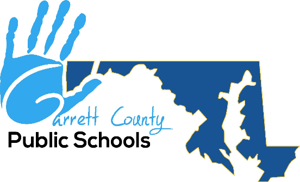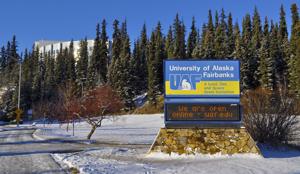Education
New Hampshire Education Funding Resilient Amid Federal Shutdown

Key federal education funding for New Hampshire schools remains largely intact despite the ongoing federal government shutdown. On Thursday, Caitlin Davis, the state’s Department of Education Commissioner, reported that funds allocated through the state education department are unaffected. This stability is due to the “forward-funded” nature of the federal money, which was provided to the state in July, ahead of the current school year.
Davis addressed members of the State Board of Education during their monthly meeting, emphasizing that the state has secured the majority of its federal education programming funds for the entire year. “We’re lucky that doesn’t impact us that much,” she stated, indicating that approximately $200 million in annual allocations from the U.S. Department of Education will continue uninterrupted.
The forward-funded allocations include significant amounts such as $50 million in Title I-A grants, which are directed to public schools serving a high number of low-income students. Additionally, funding for Title II-A, which focuses on enhancing teacher training and effectiveness, as well as resources under the Individuals with Disabilities Education Act (IDEA) for special education, are also secured.
While the educational funding appears stable, Davis cautioned that assistance programs run by other federal agencies may face challenges. For instance, funds for free and reduced-price meals from the U.S. Department of Agriculture are not provided in a lump sum to New Hampshire, leading to potential shortfalls. “We do have some advanced money,” Davis explained regarding the meals program, allowing for continued service for the time being.
Other programs impacting public schools, such as Medicaid and the Supplemental Nutrition Assistance Program (SNAP), may also experience uncertainties due to the shutdown. While SNAP benefits are currently secure until the end of October, Davis noted that Medicaid has sufficient funding to operate through the first quarter of the 2026 federal fiscal year, which commences on October 1, 2025.
The shutdown, now in its tenth day, was triggered by a stalemate in the U.S. Senate, where Democrats and Republicans failed to reach an agreement on government funding tied to health care subsidies. The impasse has resulted in widespread furloughs of federal employees, including workers at the Portsmouth Naval Shipyard, and has forced essential personnel, such as air traffic controllers, to work without pay.
In anticipation of the shutdown, Gov. Kelly Ayotte had previously asserted in a press release that most state operations would remain unaffected, predicting a “minimal impact” for at least the first 30 days. Davis echoed this sentiment during the board meeting, reassuring that all 275 staff positions within the state education department would continue to receive pay, despite some being reliant on federal funding.
“We are continuing to monitor the situation on an ongoing basis and provide updates to both schools and department employees,” Davis remarked. She acknowledged the anxiety that can arise from news about federal workers being furloughed, as many in the education sector are concerned about how such developments might impact their work and funding sources.
As the situation unfolds, stakeholders in New Hampshire’s educational landscape remain vigilant, hoping for a swift resolution to the federal funding impasse.
-

 Technology3 months ago
Technology3 months agoDiscover the Top 10 Calorie Counting Apps of 2025
-

 Health3 weeks ago
Health3 weeks agoBella Hadid Shares Health Update After Treatment for Lyme Disease
-

 Health1 month ago
Health1 month agoErin Bates Shares Recovery Update Following Sepsis Complications
-

 Technology2 months ago
Technology2 months agoDiscover How to Reverse Image Search Using ChatGPT Effortlessly
-

 Lifestyle3 months ago
Lifestyle3 months agoBelton Family Reunites After Daughter Survives Hill Country Floods
-

 Technology3 months ago
Technology3 months agoMeta Initiates $60B AI Data Center Expansion, Starting in Ohio
-

 Technology2 months ago
Technology2 months agoUncovering the Top Five Most Challenging Motorcycles to Ride
-

 Technology2 months ago
Technology2 months agoHarmonic Launches AI Chatbot App to Transform Mathematical Reasoning
-

 Technology3 months ago
Technology3 months agoRecovering a Suspended TikTok Account: A Step-by-Step Guide
-

 Technology3 weeks ago
Technology3 weeks agoElectric Moto Influencer Surronster Arrested in Tijuana
-

 Technology4 days ago
Technology4 days agoiPhone 17 vs. iPhone 16: How the Selfie Camera Upgrades Measure Up
-

 Technology3 months ago
Technology3 months agoByteDance Ventures into Mixed Reality with New Headset Development




















